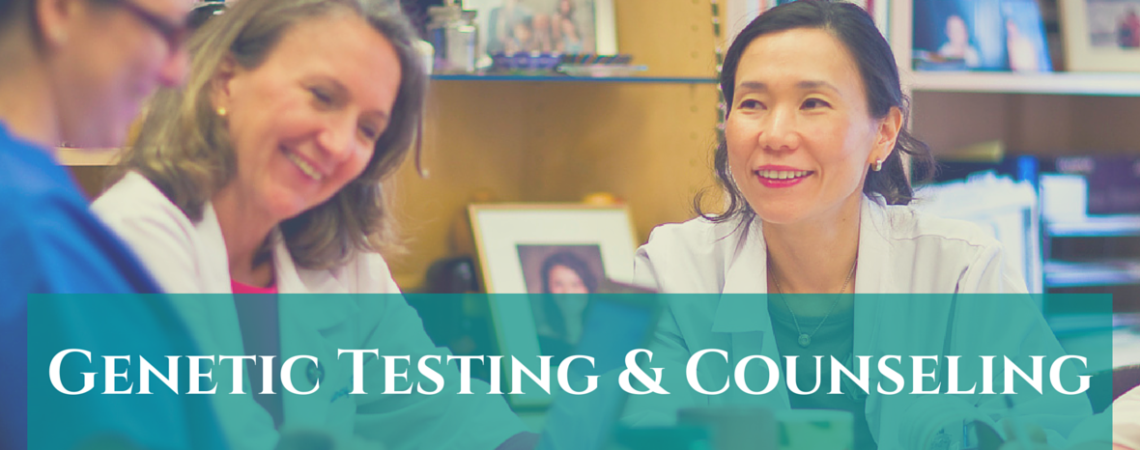Genetic testing provides powerful information which can help you and your doctor determine risk-reduction strategies. Understanding your risk and being proactive about your breast health can help lower your risk, or find breast cancer at an early (and more treatable) stage.
We encourage all men and women who have reason to suspect a genetic risk for breast and/or ovarian cancer to come to Montclair Breast Center for genetic counseling and possible testing. All appointments can be completed via telemedicine – including mailing lab samples.
Genetic and Familial Risk
About 5 – 10% of women who are diagnosed with breast cancer have a significant family history and/or genetic predisposition to developing breast cancer. At Montclair Breast Center, we offer in-house breast cancer risk assessment, genetic counseling and testing for BRCA1 and BRCA2 mutations. By identifying our patient’s risk status, we are better able to develop a detailed program of prevention and effective early detection strategies.
BRCA1 and BRCA2 Genes
Although we run a full-panel genetic test, the genes most closely related to an increased risk of breast cancer are the BRCA1 and BRCA2 genes. Research shows that the function of both of these genes is to actually prevent cancer cells from developing. However, when these genes develop a mutation, they are no longer able to perform this role, and cancer may develop. The BRCA1 and BRCA2 genes account for approximately 90% of the inherited susceptibility to breast cancer. A mutation in either the BRCA1 or BRCA2 genes increases a woman’s lifetime risk of breast cancer from 12% to up to 85%. Mutations in either BRCA1 or BRCA 2 also increase the risk of developing other potentially life-threatening cancers in men and women; such as early aggressive prostate cancer and ovarian cancer.
If you are of Ashkenazi Jewish descent, you have a higher risk for a BRCA gene mutation. 1-in-40 Jewish women of Central or Eastern European Descent has a BRCA gene mutation.
Counseling & Testing
A dedicated staff member will be your dedicated guide through the process. Using statistical models, your own family history and hormonal history, we will compile a thorough review of your potential risk of inherited BRCA mutations. Through education and team effort, we can determine your individual risk for breast cancer and use that information to develop a custom, personalized plan.
If appropriate, genetic testing can be performed on site. Genetic testing is as simple as a saliva or blood test.
What Happens if the Test is Positive?
We believe that knowledge is power. We will work together towards preventing the development of cancer, or at the very least, becoming aware of any abnormalities at the earliest stage possible. The approaches and strategies we recommend range from lifestyle changes (such as diet and exercise), preventative or risk-reducing medicine, increased surveillance using digital mammography, whole breast ultrasounds and MRI, or risk-reducing surgery.
We are a comprehensive breast center. If you require further screening, or even surgery, your Montclair Breast Center team will be there every step of the way with support and research-based guidance.





